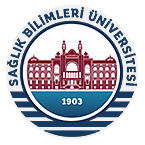ABSTRACT
Noradrenergic system is one of the major central nervous system effectors of the human stress response. The studies suggest that the patients with post-traumatic stress disorder have hyperreactive noradrenergic systems, and this exaggerated noradrenergic activity is associated with a number of hyperarousal symptoms in post-traumatic stress disorder. Central noradrenergic system also has a role in the regulation of arousal state during sleep. In this study, it was therefore aimed to investigate the relationship between nocturnal urinary levels of noradrenaline and sleep variables. Fourteen patients with chronic post-traumatic stress disorder and 12 age- and sex-matched healthy normal controls were investigated with polysomnographic recordings on two consecutive nights. Urine samples were collected for 24 hours in three 8-hour collections following the adaptation night in the sleep laboratory. Patients with post-traumatic stress disorder had difficulty in initiating sleep, poor sleep efficiency, decreased total sleep time, decreased slow wave sleep, and a reduced rapid eye movement sleep latency when compared to the normal controls. There was not any correlation between nocturnal urinary noradrenaline values and sleep variables. This study did not demonstrate any significant relationship between urinary noradrenaline levels and disturbed sleep measures in patients with posttraumatic stress disorder.



